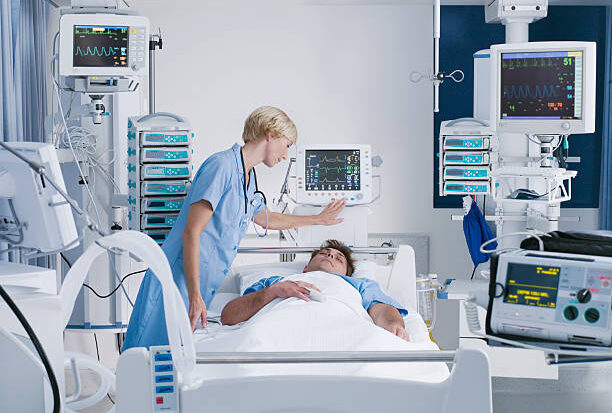Critical Care Medicine in Nashik

Critical Care Medicine
Critical Care Medicine, also known as intensive care medicine, is a branch of medicine that focuses on the diagnosis and management of life-threatening conditions and severe, complex medical issues. This specialty involves providing intensive, continuous care for patients with critical illnesses or injuries, often in an intensive care unit (ICU).
Key Aspects of Critical Care Medicine:
Patient Care: Critical care physicians, also known as intensivists, provide comprehensive care for patients who are experiencing severe and potentially life-threatening conditions. These conditions may include:
- Severe Respiratory Failure: Often requiring mechanical ventilation or advanced respiratory support.
- Septic Shock: A serious complication of infection leading to widespread inflammation and organ failure.
- Acute Renal Failure: Sudden loss of kidney function that may require dialysis.
- Multi-Organ Failure: Simultaneous failure of multiple organ systems, often requiring complex management strategies.
Monitoring and Support: Critical care involves close monitoring and support of vital functions, including:
- Respiratory Support: Managing mechanical ventilation and other forms of respiratory assistance.
- Cardiovascular Monitoring: Using advanced techniques to monitor and support heart function and blood pressure.
- Fluid and Electrolyte Management: Balancing fluids and electrolytes to maintain stable bodily functions.
- Nutritional Support: Providing enteral or parenteral nutrition to patients who cannot eat or absorb nutrients normally.
Diagnostic and Therapeutic Interventions: Critical care physicians may perform or oversee various diagnostic and therapeutic procedures, such as:
- Central Line Insertion: Placing a catheter into a large vein for medication administration and monitoring.
- Intubation and Ventilation: Inserting a tube into the airway to support breathing.
- Ultrasound: Using imaging to guide procedures and assess internal conditions.
- Emergency Procedures: Performing interventions like chest tube insertion or pericardiocentesis.
Multidisciplinary Approach: Critical care often involves working closely with other specialists, including surgeons, cardiologists, pulmonologists, nurses, and pharmacists, to provide coordinated care.
Ethical and Palliative Care: Critical care also involves making complex ethical decisions about patient care, including end-of-life issues, and providing palliative care to manage symptoms and improve quality of life.
Focus: The primary goal of critical care medicine is to stabilize patients, manage acute medical crises, and improve outcomes through intensive monitoring and intervention. This often involves a focus on both immediate treatment and longer-term recovery.
Overall, critical care medicine plays a crucial role in managing the most severe and complex medical conditions, providing life-saving interventions, and supporting patients through their recovery process in a highly specialized and intensive environment.

